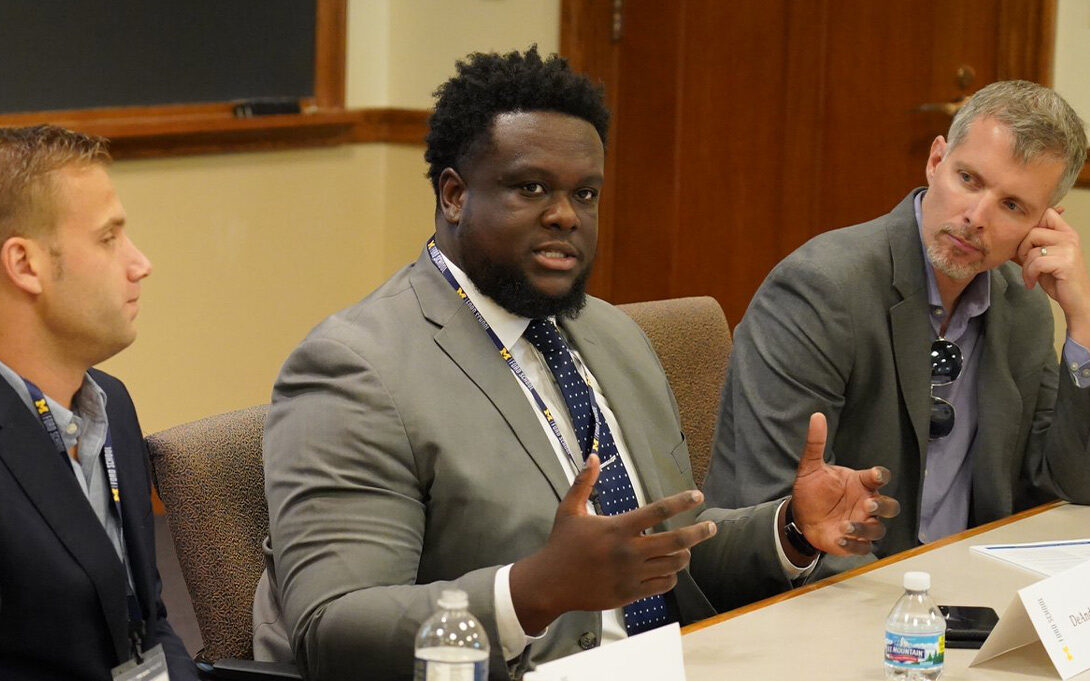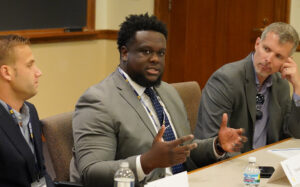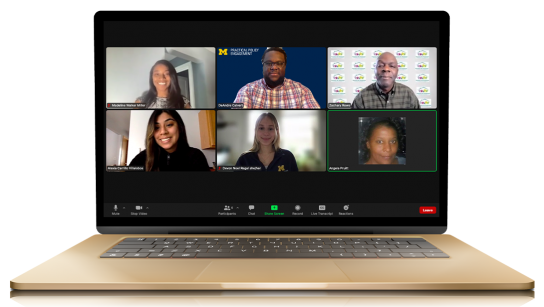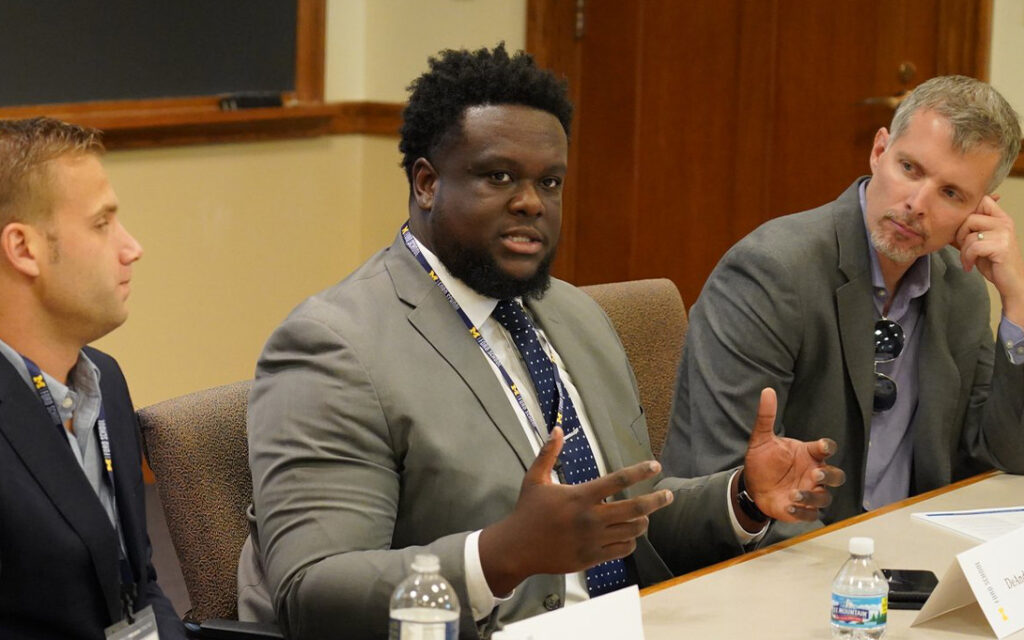Source: Ford School of Public Policy

DeAndré J. Calvert, center, helps connect students and community groups for mutual benefit.

DeAndré J. Calvert, center, helps connect students and community groups for mutual benefit.
As part of the Practical Community Learning Project, a semester-long independent policy-based community project in Detroit, community engagement manager DeAndré Calvert and a team of Ford School students worked on digital access with the Parkside community on the city’s east side.
How did the partnership with the Friends of Parkside community organization come about?
Calvert: I am a member of the external engagement working group at U-M and we get together regularly and discuss projects and partnerships. At one meeting last year, a colleague said they knew of this need and this partner organization, but it didn’t fit their capabilities. So I reached out to the executive director of Friends of Parkside. We heard about their concerns and the information they needed to obtain, and we knew we could help them with a multi-disciplinary group—a PhD student from the School for Environment and Sustainability, and Ford School Masters of Public Policy and Bachelor of Arts students.
Why is digital access important for their community?
Calvert: At the start of the pandemic, Friends of Parkside wanted to continue outreach to all of the residents in the areas of health, safety, and quality of life issues. They discovered that in many instances they couldn’t reach the residents, who did not have access to the internet or connected devices. The pandemic shined a light on the fact that digital access is both a real requirement for modern living, and a cause of inequity for those who don’t have it. With so many aspects of our lives taking place remotely, that digital divide seemed to get bigger.
What were the students able to accomplish?
Calvert: They designed the survey, which was administered by Friends of Parkside using tablets, and included questions about household demographics, infrastructure access, technology know-how, digital support, and energy consumption. They collated and organized the data for analysis by Friends of Parkside and included a few recommendations for next steps, including enrolling in DTE energy services and utilizing community tech workers.

The issues around digital access seem to touch so many policy areas.
Calvert: First you can look at social policy. Low-income people have trouble accessing the internet and all of the benefits that it can bring because of a range of issues—limited infrastructure like computers, or a lack of phone lines, or expensive energy costs. And once you help solve those issues, you still need to make sure the community has long-term support, about how to use the tools to their best advantage. It touches education policy in a big way. Those students who didn’t have hardware or connections were going to fall behind immediately. And the education system had to respond to those needs, and redesign coursework, so that the children could participate properly.
Why are these types of projects important for public policy students?
Calvert: The Practical Community Learning Project activities are really win-win. Students get to use their skills in data collection and analysis and see first-hand how policies affect people in many different settings. And our community partners can tap into some of the expertise we have here to help them solve problems, in this case addressing the digital divide, and in others helping small business owners with COVID resources, or tackling immigration policy in Michigan.
My grandmother worked at U-M Flint for 30 years. It is an honor to continue her legacy by being able to work with the students and our community partners.
This article originally appeared in the Ford School’s alumni magazine State & Hill.


